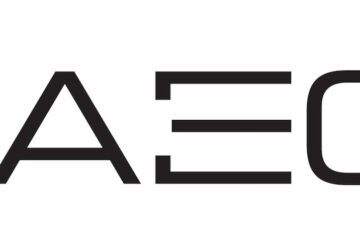EDUCATION ASSISTANT (EA) INTERVIEW QUESTIONS AND ANSWERS
Firstly, before we go to questions and answers, Please Do not forget Batho Pele Principles. Check below what are the Batho Pele Principles.
The Batho Pele principles, meaning “People First” in Sotho and Tswana, are a set of guidelines for public service delivery in South Africa. They emphasize putting citizens at the heart of government services, ensuring that services are accessible, transparent, and provide value for money. The principles aim to improve the quality of public service by prioritizing the needs and expectations of citizens.
All public servants are required to practice Batho Pele.
There are 8 principles or guidelines for Batho Pele in the White Paper. They are:
1. Consultation
2. Service Standards
3. Courtess
4. Access
5. Information
6. Openness and Transparency
7. Dealing with complaints
8. Giving Best Value
Batho Pele -“People First” was conceived with the intention of transforming service delivery in the public sector. Good service delivery leads to happy customers and employee satisfaction for a job well done.
Batho Pele was founded on 8 principles, but since the inception of the Awards, two more principles have been added.
Consultation
This is about asking our customers what they want and finding out how we can best meet their needs. This may be done by questionnaires, or by talking to customers. It’s important to consult as many of our customers as we can and to use the information we receive to help improve our service to them. It’s important to report back to customers so they know what to expect, and to our staff so they know what is expected from us.
Service Standards
While we should continually try to improve the service we give, it’s also about how well we promise to deliver our service at any time. If we already know what is important to our customers then we can set service standards which must be realistic depending on the resources we have. We should also be able to measure these standards so that everyone can see if they are being met.
Access
Access applies especially to the previously disadvantaged sectors of the community and to people with special needs. These needs may include access to our department for the physically disabled, or having services which are too far away for people to visit. Good staff attitudes and addressing customers in their own language makes access easier.
Courtesy
Courtesy is not only being polite to customers, but being friendly, helpful and treating everyone with dignity and respect. We should write down a code of conduct and we should train and assess our staff in customer care. Our managers should monitor the relationship between front line staff and customers and help staff to give a warm and friendly service to everyone.
Information
Information is about reaching all our customers to make sure they are well informed about the services our department provides. This may be done in a number of ways-for example through newspapers, radio, posters and leaflets. It’s important to remember that different customers have different needs and they do not all speak the same language. We should disseminate a Service Commitment Charter to inform customers about the services we offer.
Openness and Transparency
This Batho Pele principle encourages our departments to be open and honest about every aspect of our work. We should publish an annual report to tell citizens how our resources were used, how much everything cost, including costs for staff, equipment delivery, services and so on. It should also include how well our department performed-did we keep our promises-deliver on time and so on. If we did not meet our standards, we should list the reasons and find ways to improve our service. We should hold “open days,” and invite members of the public to show them how we run our business.
Redress
Redress is making it easy for people to tell us they are unhappy with our service. We should train staff to deal with complaints in a friendly, helpful manner. We should apologise and put the problem right as quickly as possible. We should tell Customers how and where to complain and we should keep a record of all complaints and how we dealt with them. We should understand that complaints can help us to improve our service as they tell us what our customers want.
Best Value
This principle includes giving our customers the best service we can using all our resources. It also means eliminating waste, fraud and corruption and finding new ways of improving services at little or no cost. This might include us forming partnerships with other service providers and the community. If we work efficiently and maximise our skills we will add value and produce service excellence to give our customers the best value for their money. Innovation and Reward This Batho Pele principle was an addition to the original list as a result of many of the participating departments innovative and creative ways of “doing things better.” Innovation can be new ways of providing better service, cutting costs, improving conditions, streamlining and generally making changes which tie in with the spirit of Batho Pele. It is also about rewarding the staff who “go the extra mile” in making it all happen.
INTERVIEW QUESTIONS AND ANSWERS
1.Why do you think you’re qualified to be an education assistant?
An education assistant is a subordinate position that requires applicants to work well with their immediate supervisors and children. This question asks applicants if they’ve thought about the reasons they want to be an education assistant and what they bring to the position.
What to look for:
Applicant’s’ interest in being an education assistant
What qualities applicants bring to the position
Experience dealing with children
Example:
“I previously worked at an after-school program for primary students. As I worked there, I realized I enjoyed working with young kids. I believe that as an education assistant I’ll have the ability to play a more hands-on role in a child’s day-to-day learning and transfer some of my enthusiasm for learning to my students, making school a more enjoyable experience for them .”
2.What role do you think an education assistant plays in the classroom?
An applicant should discuss what role they believe an education assistant plays daily in the classroom. This question ensures applicants fully understand the role and responsibilities of an education assistant.
What to look for:
Whether applicants know the expectations of the position
How important they think the education assistant role is in the classroom
Examples of how the education assistant aids the teacher
Example:
“The education assistant’s job is important because it allows the instructor to devote all their efforts to offering as much instruction, attention and assistance as possible to the students. As an EA, I would handle the more repetitive tasks, such as grading documents, supervising tests and arranging documentation, so the teacher can concentrate on the larger role of teaching and ensuring students are learning the information.”
3.If a small group of kids is constantly disrupting the class by laughing, talking and passing notes, how would you handle the situation?
As an EA, there might be times where the person will need to discipline a student or deal with behavioral problems. This question shows if applicants are capable of handling a difficult situation on their own.
What to look for:
Resourcefulness
Communication skills
Ability to manage conflict
Example:
“If students were interfering with the class and didn’t appear to be focusing, I would follow whatever disciplinary action the teacher and I had agreed upon previously. In most cases, this would involve separating the disruptive students on opposite sides of the classroom. By separating them, they are still a part of the learning environment without being able to disrupt the rest of the class.”
4.Does it matter if kids find school fun and enjoyable?
There is no right or wrong answer to the question. The goal is to get an idea of the applicant’s ability to think critically on the topic of education and teaching and offer an informed opinion on the subject.
What to look for:
Their philosophy on education
Critical thinking skills
If the applicant can succinctly articulate their position
Example:
“While not required, I think having fun is an important part of making children excited about learning. If the students are excited to come to school each day, it makes teaching them easier and, I feel, makes them more likely to engage in the classroom and retain the information being taught.”
5.If the teacher does something you strongly disagree with, how would you handle the situation?
Education assistant have to interact with many people throughout the day, so conflict will happen from time to time. This question aims to see if applicants understand ways to deal with conflict with their immediate supervisor while still being able to express their concerns.
What to look for:
Interpersonal skills
Communication skills
Understanding role in a hierarchy
Example:
“If the teacher and I were to disagree, I would bear in mind that it is their class, so they have the authority and the last word. With that said, If I were passionate about a topic, I would schedule a time to speak with them either before or after class and argue my position respectfully and clearly.”
6.Tell me about a time you effectively convinced a child to complete an assignment they didn’t want to do initially.
Education assistant have to know how to work with kids even when they don’t want to do their work. This question allows applicants to demonstrate their ability to work with students when they aren’t cooperative.
What to look for:
Conflict resolution skills
Interpersonal skills with kids
Ability to encourage students
Example:
“In my last position at the after-school program, we regularly completed various arts and crafts projects. In one case, there was an origami project one child was struggling to complete, and she announced, rather loudly, that the project was stupid and she wasn’t going to finish it. Instead of being frustrated with the child, I picked up the pieces, sat her down and explained we could complete the project together. Walking her through it, we completed the project and she couldn’t have been more proud of herself.”
Good Luck!!









